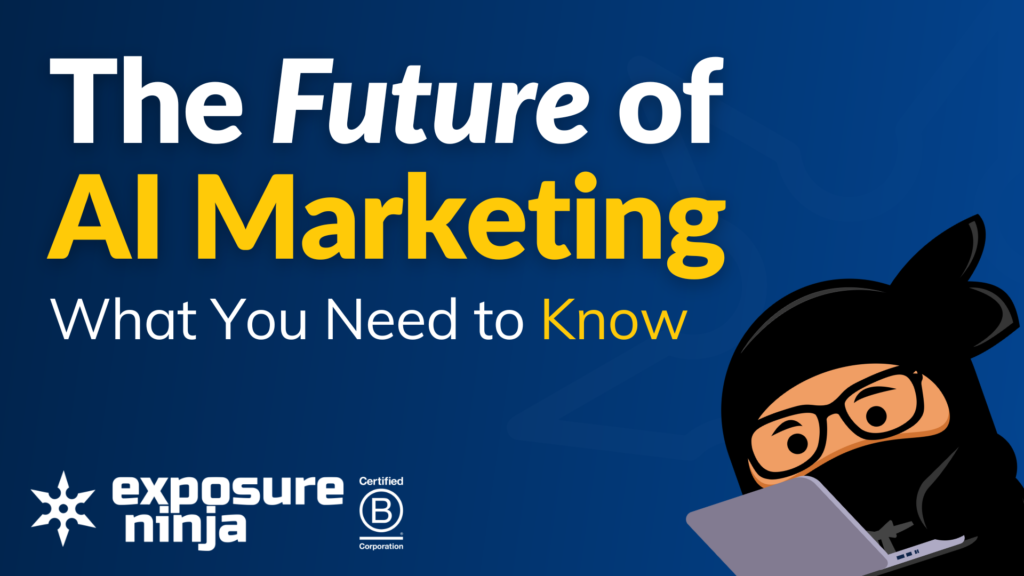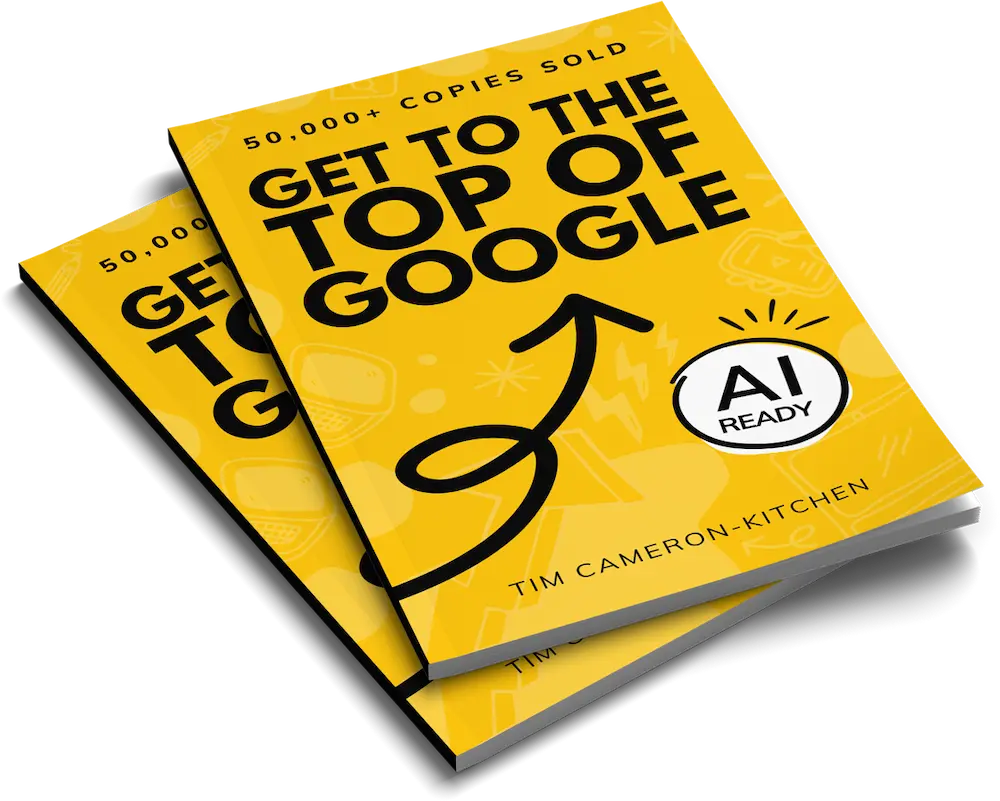
Get Weekly Marketing Tips
Join 30,000+ marketers and get the best marketing tips every week in your inbox
TL;DR
Generative Engine Optimisation, or GEO, is about getting your content featured in AI responses, like when someone asks ChatGPT a question. Unlike traditional SEO where you’re trying to rank in Google, with GEO you want AI to reference your content as a trusted source. It’s becoming crucial because more people are using AI for search, and if you’re not optimising for it, you’re missing out on massive visibility.
What is Generative Engine Optimisation (GEO)?
Generative Engine Optimisation, or GEO, is a technique for optimising website content so it’s referenced and prioritised by AI platforms like ChatGPT and Claude.
Think of it this way: When someone asks ChatGPT a question about your industry, you want your content to be one of the sources it uses to craft its response.
The Difference Between GEO and SEO
Here’s what makes GEO different from traditional SEO:
Traditional Search Engine Optimisation is about ranking in a list of search results – you’re either position 1, 2, or (hopefully not) on page 2. Pretty straightforward.
GEO is completely different. Instead of ranking in a list, you’re trying to get your content quoted within AI-generated responses. It’s more like being referenced in a conversation than appearing in a directory.
Why You Need a GEO Strategy
Look, I get it. Another thing to add to your marketing to-do list. But here’s why this matters:
AI search is growing rapidly, and it’s changing how people find information. Produce and service discovery is happening across multiple platforms and the number of touchpoints required to convert someone is tripling.
Remember when businesses thought they didn’t need social media? This is that moment for GEO. Early adopters will have a massive advantage as AI continues to grow as a primary search method.
How Generative AI Works
Without getting too technical, here’s what you need to know:
Generative AI works by collecting massive amounts of data, processing it, and learning how to understand and respond to questions. When someone asks a question, it creates a new response by pulling information from multiple sources it trusts.
This is why authority and accuracy matter so much in GEO – AI systems are designed to reference content they consider reliable and trustworthy.
How To Measure Generative Engine Optimisation
Measuring GEO is trickier than traditional SEO. Instead of just checking your Google rankings, you need to track:
- Actually ask AI platforms about your brand (yes, really – it’s like interviewing them)
- See how often AI mentions your brand or product/service
- Check whether it’s quoting your information accurately
- See whether you have referral traffic from AI platforms in your analytics
- Watch for increases in branded searches (people often verify AI recommendations through Google)
Pro tip: Do that first one now. Ask ChatGPT what it knows about your brand. The answers might surprise you.
The catch? There’s no centralised tool for this yet. You’ll need to actively (and manually) test and monitor AI responses in your industry.
How To Optimise for Generative Engines (like ChatGPT)
Let’s keep this practical.
First thing you need to do? Interview the AIs about your brand. Sounds bonkers, but trust me on this. Ask ChatGPT and Claude what they know about your business. If they’ve never heard of you (and this happens more than you’d think), you’ve got work to do.
Here’s what actually works:
Create High-Quality Content
Not just for humans, but for AI too. Your content needs to be crystal clear and properly structured:
- Clear, descriptive headings (not clever ones)
- Short paragraphs (think 2-3 sentences max)
- Proper image captions (yes, really – AI reads these)
- Summaries at the start of your content
- Lists when they make sense (like this one)
- FAQs that actually answer real questions
Manage Your Reputation
This is massive for GEO. AI systems don’t just read your website – they look at everything about your brand online:
- Got negative reviews? Deal with them properly
- Respond to every review (good and bad)
- Be active on social media
- Monitor what people say about you on Reddit, Quora, and industry forums
- Keep your business listings up to date everywhere
Only Create Expert-led Content
Here’s the thing about AI – it’s getting scarily good at spotting when you’re winging it. So:
- Stick to what you genuinely know
- Back up claims with real data
- Reference other experts (even competitors)
- Update your content regularly (AI loves fresh content)
- Write informational content that actually helps people
Position Your Brand Clearly
This is where Generative Engine Optimisation gets really interesting. You need to be crystal clear about:
- What makes you different
- Who you actually serve
- Where you operate
- What you’re the expert in
- What problems you solve
Why? Because if you’re not clear about these things, AI won’t be either. And if AI’s not clear, it won’t recommend you.
Earn External Validation for Your Expertise
Unlike traditional SEO, with GEO you want to spread your expertise around:
- Write for industry publications
- Get quoted in the press
- Share your knowledge on other platforms
- Collaborate with other experts
- Build genuine relationships in your industry
Tackle the Essential Technical Bits
Yes, there are some technical things to consider:
- Use proper structured data
- Make sure your site’s easy to crawl
- Keep your XML sitemaps up to date
- Use clear, descriptive URLs
- Make sure your site’s mobile-friendly (still matters)
The really important bit? Test everything.
Ask AI platforms specific questions about your brand and industry. See what they say about you. If they’re saying the wrong things (or nothing at all), you know what you need to work on.
Remember: unlike traditional SEO where you’re fighting for the top spot, with GEO you’re trying to be seen as a trusted source of information. It’s more like building your reputation than winning a race.
That’s the thing about GEO – it’s not just about your website anymore. It’s about your entire online presence.
The Future of Search
Gartner (the tech research and consultancy company) have predicted that traditional SEO traffic could drop by up to 50% by 2028. That’s massive. Even if they’re being dramatic and it’s only 25%, that’s still a quarter of your organic traffic potentially disappearing.
Why? Because people are shifting to AI search tools like ChatGPT and Claude instead of scrolling through Google results.
We’re watching search behaviour change in real-time. More people are turning to AI for answers.
This doesn’t mean traditional SEO is dead – far from it. But it does mean you need both strategies working together.
Is your marketing underperforming?
Request a free website and marketing review and our team will tell you how to improve your marketing.


Next Steps
Start by testing how AI platforms currently reference your content. Ask ChatGPT questions about your industry and see if your content shows up.
Once you have an idea of how much coverage your brand is getting, it’s time to improve your content. You don’t need to rewrite your entire website tomorrow. Start small:
- Pick 3-5 key pages on your site (yes, that’s all you need to start with)
- Ask AI platforms what they know about those topics
- Look for gaps between what you offer and what AI says about you
- Fix those gaps
Here’s a real example: we recently found that an AI platform thought one of our clients only served a specific type of customer. Complete nonsense, but because some old reviews suggested it and nobody had corrected them, the AI was confidently telling people this rubbish.
Then, review your existing content. Is it authoritative? Clear? Backed by data? These are the foundations of good GEO.
In Summary
GEO isn’t just another marketing buzzword – With traditional search traffic potentially dropping by up to 50%, this is something you need to take seriously. It’s a fundamental shift in how content gets discovered and shared. The good news? The core principle is simple: create genuinely helpful, authoritative content that answers real questions.
The businesses that adapt to this change now will have a significant advantage as AI continues to reshape how people search for information. It’s like SEO in 2010 – the early birds got the juiciest worms.
Want to stay updated on all things GEO? Subscribe to our YouTube channel and podcast to stay in the know as this field evolves.
Start by watching this video about how to create a high-impact, revenue-driving digital marketing strategy for 2025:


















